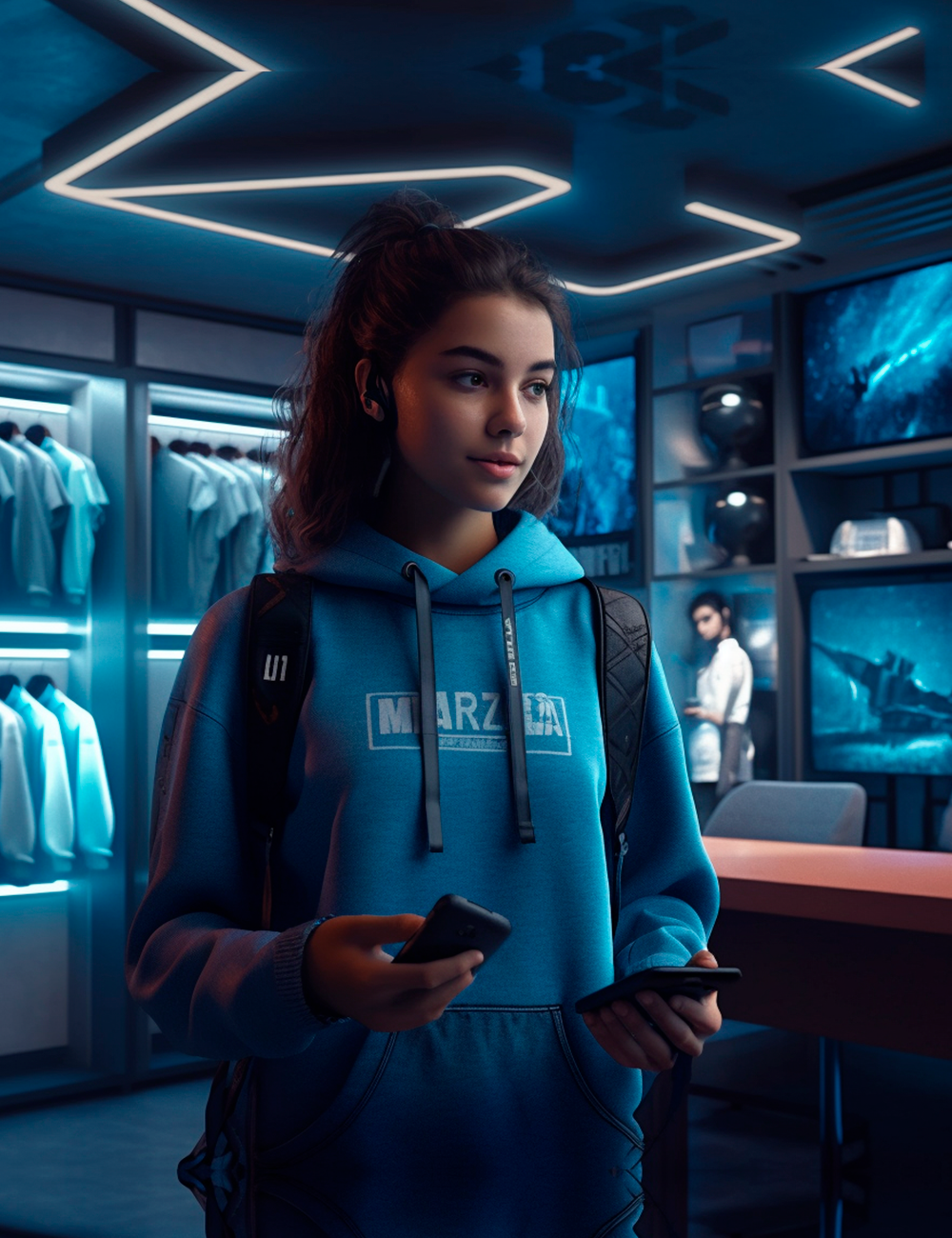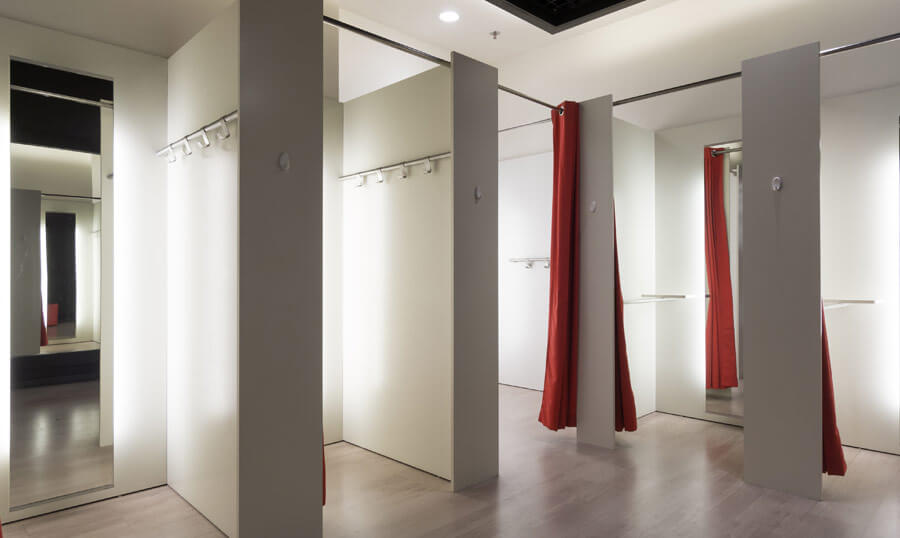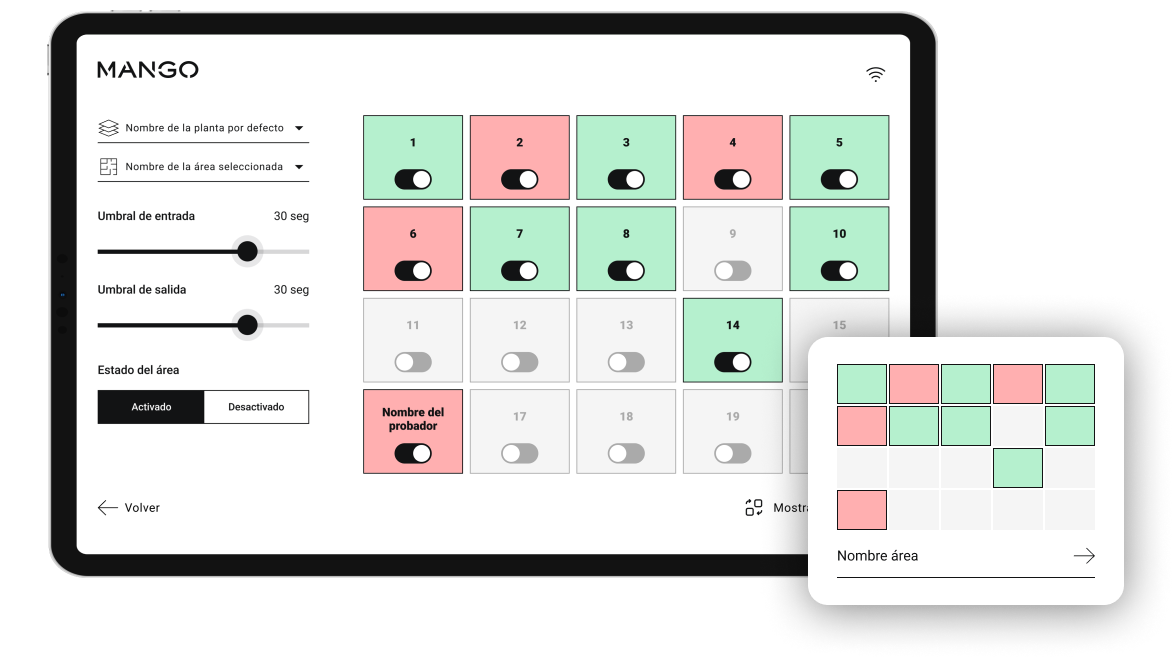We are the Cliff.




MANGO
The challenge: intelligent store fitting room management
The challenge: intelligent store fitting room management
Mango has hundreds of stores across Europe where it is necessary to streamline the operation through technology and also offer an improved experience to its customers in store.
One of the challenges is something as simple as providing intelligence to store fitting room management. Many stores have a variable use of fitting rooms for various reasons: due to the influx of public, logistical issues in which the fitting rooms become warehouses or even the opening or closing of areas in a store.
In addition, maintenance personnel do not have first-hand information and it is sometimes difficult to be efficient in their work.
On the other hand, digitizing the use of fitting rooms would make it possible to obtain anonymous usage data that would help to better understand the behavior and needs of each store in order to optimize the user experience and adapt the infrastructure to each case.

Rapid prototyping for hypothesis validation
We needed to quickly evaluate the integration between the hardware parts of the store and the presence sensors of the fitting rooms.
Thanks to rapid prototyping, we were able to check the feasibility of the solution and resolve the first technical doubts that MANGO’s challenge posed.

Business and functional needs assessment
Once we confirmed the feasibility of the solution, we defined the functional and business needs for the two types of users that were identified:
Store Staff
They use the information through an internal application on their tablets to organize and streamline the store in real time and collect insights on fitting room usage to propose in-store actions (restructuring of fitting room areas).
Customers
Consume a more concise version of this information on screens at the entrance of the fitting rooms to see which fitting rooms are open and which are not.
In addition, we identified that we were looking for a solution that had the following advantages:
Rapid scalability and low cost: MANGO has many stores and the implementation of this technology had to be potentially high.
Remote configuration and maintenance of the entire solution in each store at a low cost: MANGO does not have a technical team in each store and this would increase costs.
A global impact for the entire company.
Short term:
Without overburdening with complicated deployments and implementations or adding dependencies on technological capabilities, it has managed to make useful information available, streamline operations and create a differential micro-experience for customers in the store. Moreover, seeing the impact it has had, Mango has decided to expand the project and explore including other operations in the app and other insights extracted from the impact that in-store actions have on sales: changes in furniture, product, window displays or signage.
In the medium term
Once scaled, this anonymous data can be the seed for decisions to restructure the design of Mango’s fitting room areas: their layout, their scale… The annual seasonal data can also provide interesting insights on how to restructure stores more efficiently in specific campaigns.
